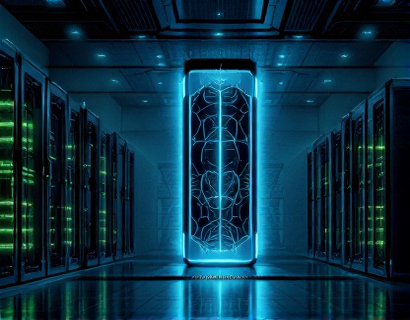Campaign Management Software for Politicians: Revolutionizing Governance with Advanced Tech Solutions
In the fast-paced world of politics, effective campaign management is crucial for success. Advanced technology solutions have emerged to revolutionize the way political leaders manage their campaigns, interact with constituents, and govern. These software tools are designed to streamline processes, enhance transparency, and foster deeper connections with the public. This article delves into the transformative impact of campaign management software on modern governance, highlighting its key features and benefits for politicians and campaign managers.
Streamlining Campaign Operations
Campaign management software serves as a centralized hub for all campaign-related activities. It integrates various aspects of campaign management into a single, user-friendly platform. This integration eliminates the need for disparate tools and systems, reducing complexity and increasing efficiency. Key operations such as donor management, volunteer coordination, event planning, and messaging dissemination are all streamlined, allowing campaign teams to focus on strategic activities rather than administrative tasks.
The software provides robust tools for tracking and managing campaign finances. Budgeting, expense tracking, and reporting are automated, ensuring accurate and timely financial oversight. This transparency is vital for maintaining trust with donors and the public. Additionally, the platform supports compliance with financial regulations, reducing the risk of errors and penalties.
Enhancing Transparency and Accountability
Transparency is a cornerstone of trust in politics. Campaign management software enhances transparency by providing real-time access to campaign data. Politicians and their teams can monitor progress, view financial reports, and track engagement metrics all in one place. This visibility extends to the public as well, as many platforms offer public dashboards or APIs that allow constituents to view campaign activities and expenditures.
Moreover, the software facilitates open communication channels. Candidates can use built-in messaging tools to share updates, policies, and personal stories directly with their supporters. This direct line of communication helps build a stronger connection with the electorate, fostering a sense of inclusivity and engagement.
Fostering Deeper Connections with Constituents
One of the most significant advantages of campaign management software is its ability to enhance interactions with constituents. The platform supports multi-channel communication, allowing candidates to engage with voters through email, social media, text messages, and phone calls. This multi-faceted approach ensures that messages reach a broader audience and that constituents feel heard and valued.
Social media integration is a critical feature, enabling candidates to monitor and respond to public sentiment in real-time. Sentiment analysis tools can gauge the emotional tone of online discussions, helping candidates tailor their messages to address concerns and capitalize on positive feedback. This dynamic engagement not only humanizes the candidate but also demonstrates a commitment to listening and responding to the community.
Data-Driven Decision Making
Campaign management software leverages advanced analytics to provide insights that drive strategic decision-making. Data collected from various sources, including surveys, social media interactions, and event attendance, is analyzed to identify trends and patterns. This data-driven approach allows candidates to understand their audience better, refine their messaging, and allocate resources more effectively.
Predictive analytics tools can forecast election outcomes based on current trends, helping candidates adjust their strategies proactively. By identifying key demographics and influencers, candidates can target their efforts more precisely, maximizing their impact and increasing the chances of success.
Improving Efficiency and Productivity
The automation of routine tasks is a game-changer for campaign teams. Scheduling tools manage event calendars, ensuring that all appointments and public appearances are coordinated seamlessly. Task management features assign responsibilities and set deadlines, keeping everyone on the same page and accountable for their duties.
Collaboration tools within the platform facilitate teamwork, allowing team members to share documents, discuss strategies, and provide updates in real-time. This level of collaboration is particularly beneficial for campaigns with remote or distributed teams, ensuring that everyone is aligned and working towards common goals.
Enhancing Candidate and Staff Training
Campaign management software often includes training resources and support materials to help candidates and their staff maximize the platform's capabilities. Tutorials, webinars, and user guides ensure that team members are proficient in using the tools, reducing the learning curve and increasing productivity.
Continuous support is crucial, especially during the intense periods of a campaign. Dedicated customer support teams are available to assist with any issues or questions, ensuring that the campaign can focus on its core objectives without being hindered by technical challenges.
Building a Sustainable Political Legacy
The use of advanced campaign management software extends beyond the election cycle, contributing to a candidate's long-term political career. The data and insights gathered during a campaign can inform future strategies, helping politicians refine their policies and messaging to better serve their constituents.
Moreover, the transparency and accountability fostered by these tools build a reputation of integrity and trustworthiness. Constituents are more likely to support candidates who demonstrate a commitment to open and efficient governance. This positive perception can translate into sustained political influence and the ability to enact meaningful change over time.
Conclusion
Campaign management software is more than just a tool; it is a transformative force in modern politics. By streamlining operations, enhancing transparency, fostering deeper connections, and providing data-driven insights, these solutions empower politicians and campaign managers to achieve their goals more effectively. As technology continues to evolve, the potential for innovation in political campaign management is vast, promising a future where governance is more responsive, transparent, and inclusive.











































